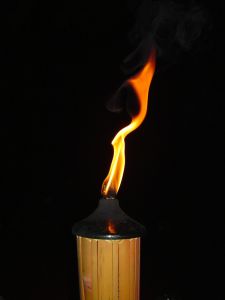My Father’s Watches

My Dad loved his watches, which was ironic for a man with such a questionable record for punctuality. He had a fine collection of watches too, gathered over many years. There was his waterproof watch with the eerie green glow-in-the-dark face which he said would always be useful if he went scuba diving. (He never did in his life, nor ever intended to.) It kept perfect time, but, he said, was annoying in that there were no numbers on the dial. While deducing the time was no great intellectual challenge, if the watch was, say, by the side of the bed in the middle of the night, you could waste a good deal of sleepy thought trying to work out where noon was.
Then there was the mechanical watch which showed not only the time in London, but also in three other time zones, but kept appallingly inaccurate time; or the clever chunky watch which came with stopwatch and three counters for recording where in the day you were with a single dial moving through twenty four points, and two smaller dials for the tenths and hundreds of a second. With its numbers written on with an incredible delicacy, he loved to look at the watch, but hated that it chaffed against his wrist. There was his radio controlled watch – perfectly synchronized, he’d proudly say, to a cesium clock in Hull, whose oscillations were used to precisely divide that elusive concept, time, into neat, measurable chunks. Then one day something clearly went wrong with the oscillation of cesium, for suddenly his clock was three hours forward, then three hours back, then stopped altogether, and with a sigh, he went back to a more mechanical approach to time. The watch most reliably on his wrist was a mechanical watch, with a plain brown strap and simple face, which he loved for being easy, comfortable and nothing which he felt in danger of having stolen or would be worried about losing. It was easy to read but lost, he informed us, four seconds a week. “It may not sound like much,” he exclaimed, “But after a month can you imagine how much time you’ll have lost?” (To which the answer was a resounding, mathematical, yes.” The indignation in his voice at the notion – that time might actually be stolen from him by four second increments – resounded so strongly that after a while, he got in the habit of setting his clock by the pips broadcast on the BBC. One week ‘Today’ overan, and the BBC was late, and he was flustered and infuriated, no longer sure if his watch was four seconds fast, four seconds slow or, even worse, some unknown quantifier in the middle.
“What is time?” he’d ask. “An axis on the graph? A mere component in a question of distance travelled at a speed? You cannot hold it, cannot hoard it, cannot stop it, can only count it, and what exactly are you counting? The oscillations of cesium within an arbitrary unit of measurement?” These questions, interesting as they were, invariably arose when running late to catch an airplane…
At the end of the day, I don’t think it was time, per se, that led my Dad to acquiring so many watches. I think it was the mechanical elegance with which we measure it, the beauty and the ingenuity that has gone into representing its passage, recording its length, fitting it into the environment in which we live. It’s the delicacy, or the cleverness, or the deceptive simplicity with which we record the passing of our days, that Dad always found in his watches.





